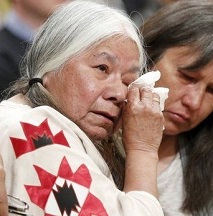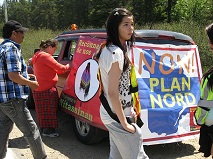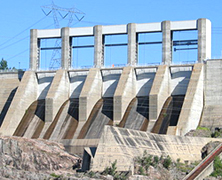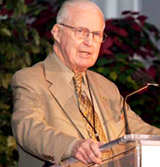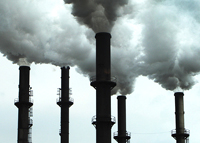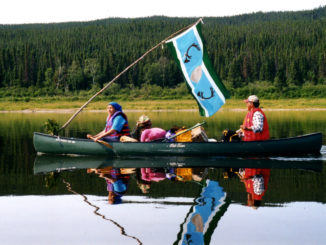
Damming Muskrat Falls: Land and River Protectors in Canada Recharge the Debate on Mega-Dams
Almost twenty years ago I made an eleven-day canoe journey down one of North America’s grandest rivers, the Grand River in Labrador, Canada. Our guides were four indigenous elders who had grown up traveling the river. We listened to their stories. We ate porcupine and goose and salmon. The trip ended at Muskrat Falls, where we hauled our canoes up a trail that had been used for generations by the region’s indigenous people. Today, Muskrat Falls is the site of a 12-billion-dollar mega hydroelectric project; the falls no longer exist.

